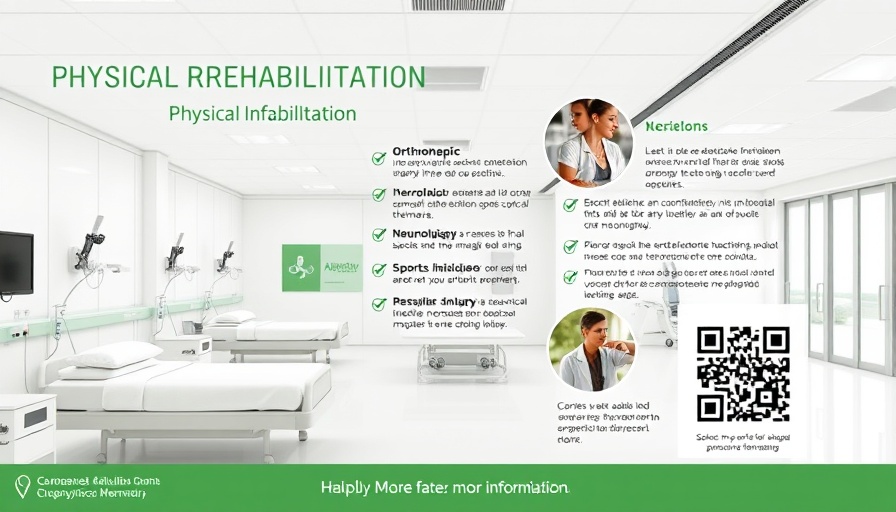
The Opening of New Rehabilitation Doors in Cape Town
In a significant advancement for South Africa’s healthcare landscape, the launch of the Intercare Newlands Physical Rehabilitation Hospital sets a new standard for integrated rehabilitation services. Located on the fifth floor of the Sports Science Institute of South Africa (SSISA) complex, this facility embodies a collaborative vision between Intercare and SSISA, merging healthcare excellence with innovative rehabilitation methodologies.
A Collaborative Vision for Recovery
The partnership between Intercare and SSISA is a natural evolution of both organizations' missions to promote well-being and peak performance. Dr. Hendrik Hanekom, CEO of the Intercare Group, highlighted that their collaboration signals a major shift towards integrated physical rehabilitation that combines superior patient care with the performance-driven ethos that SSISA offers. This integration not only broadens the scope of clinical services provided but also enhances the patient experience during recovery.
Comprehensive Care Under One Roof
The new rehabilitation hospital showcases an interdisciplinary approach to healthcare. Equipped with a resident doctor, physiotherapists, occupational therapists, and other specialists, the facility is designed to cater to a variety of rehabilitation needs, from neurological recovery, orthopedic rehabilitation, sports injuries, and even chronic disease management.
Patients at the Intercare Newlands Hospital will benefit from tailored rehabilitation plans, actively involving family members in a supportive recovery environment. This model reflects a holistic view of health, crucial for increasing engagement and improving outcomes in rehabilitation.
Addressing Diverse Healthcare Needs
More than just a physical hospital, this facility represents a beacon of hope for individuals recovering from various conditions, including neurological disorders like strokes, post-operative orthopedic care, heart and lung rehabilitation, amongst others. The hospital’s comprehensive service offerings ensure that patients receive the essential care they need.
Furthermore, with the ongoing challenges faced by South Africa's health infrastructure—exacerbated by chronic diseases such as diabetes and the impacts of COVID-19—the role of integrated facilities like this is increasingly important. They serve a dual purpose; advancing medical innovation and becoming a crucial part of the National Health Insurance (NHI) ecosystem aimed at improving health equity in the nation.
Setting a Benchmark for Rehabilitation Services
As South Africa strives to fortify its healthcare infrastructure, the Intercare Newlands Physical Rehabilitation Hospital stands as a testament to the potential of private healthcare in enhancing public health outcomes. This initiative emphasizes not only the importance of rehabilitation in disease prevention and management but also the integration of services across the healthcare spectrum, ensuring that patients have access to holistic care.
A Future of Enhanced Healthcare Collaboration
The launch of this hospital in Cape Town signals a pivotal moment in the evolution of healthcare delivery, specifically in rehabilitation. Dr. Mandlenkosi Moyo from SSISA states it best: the facility is more than just a hospital; it is a center of excellence for recovery and resilience. Following this model could inspire similar partnerships throughout the healthcare spectrum, driving innovations that bridge the gap between private and public healthcare sectors.
Call to Action
As healthcare professionals and community members, let’s engage with these developments. If you or a loved one is in need of rehabilitation services, consider exploring what Intercare's Newlands Physical Rehabilitation Hospital has to offer. Recognizing the importance of rehabilitation in recovery is essential for nurturing resilience and health in communities. Learn more about their services today!
 Add Row
Add Row  Add
Add 




Write A Comment